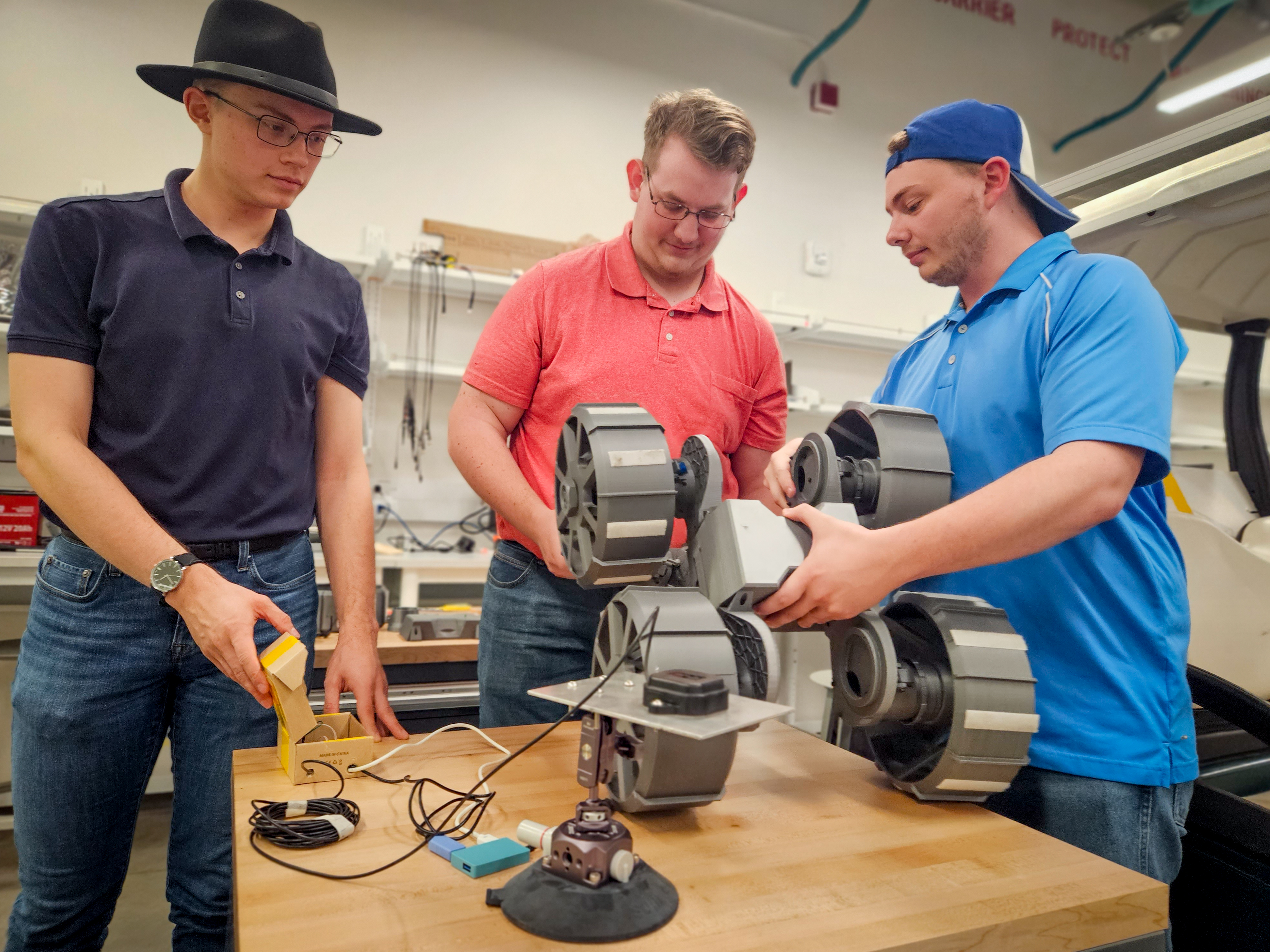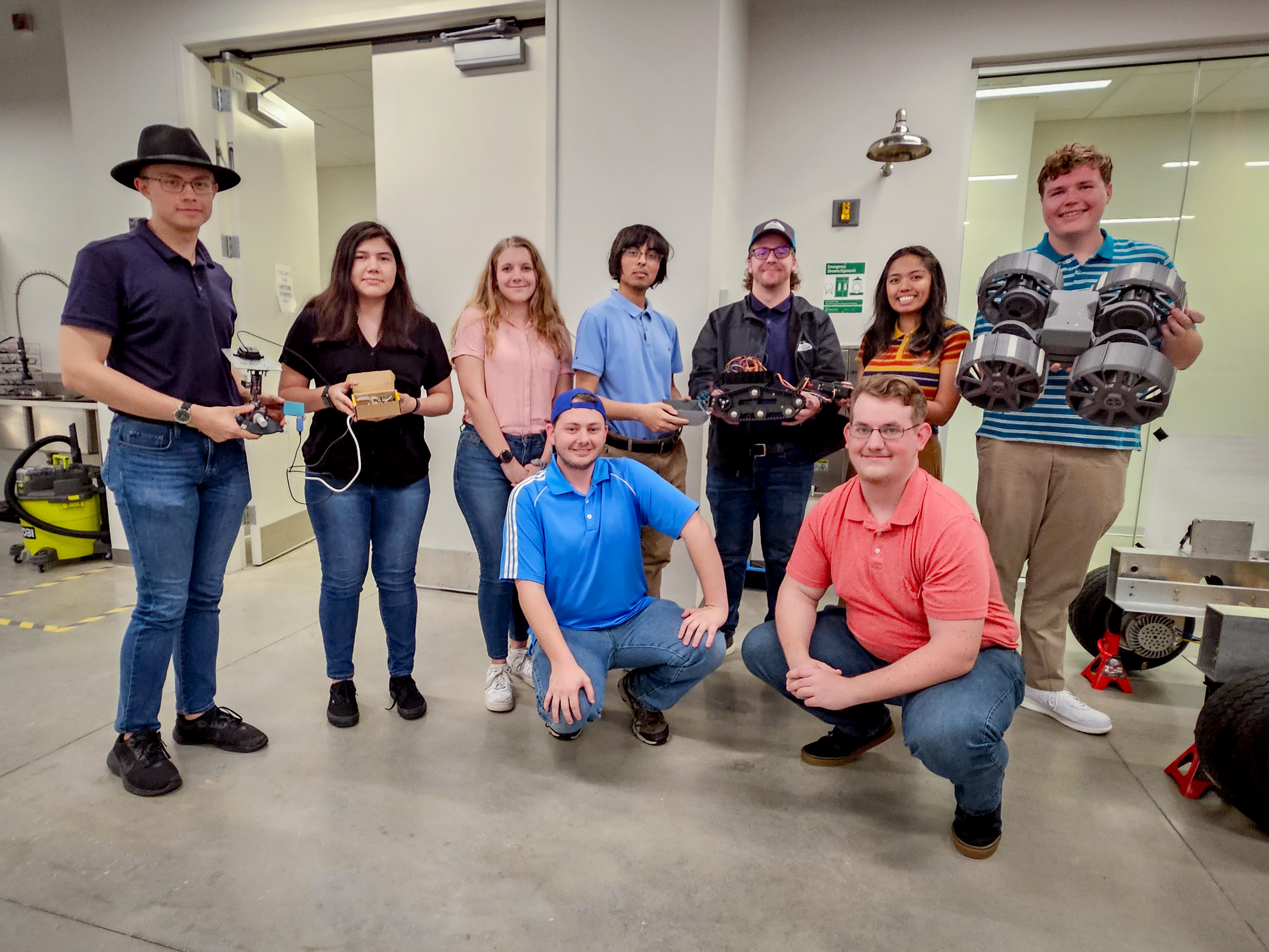
A team of Florida Polytechnic University senior capstone students is working on a project sponsored by the Florida Space Institute to build a marsupial rover that will assist with road development on the moon. Students Alexander Bodoh (left), Samuel Porter, and Eli Staudenmaier show how the rover will operate.
A team of senior capstone students at Florida Polytechnic University is taking on the challenge of developing an innovative autonomous navigation system for a marsupial rover. The project is intended to contribute to the development of future infrastructure on the moon.
The project’s goal is to assist in the development of roads on the moon or other planets, specifically focusing on pre-road construction. The effort is sponsored by the Florida Space Institute.
“We are finding a predetermined lunar road path and compacting the settlement there so a road can be placed without any shifting, and it is safer for construction,” said mechanical engineering major Eli Staudenmaier, the team’s lead.
So far, the team has constructed prototypes of both the marsupial rover and the software needed to operate it. To maximize work impact, the team divided itself into three groups focusing on aspects related to mechanical engineering, electrical engineering and computer engineering, and computer science.
The marsupial rover will fit snugly into a spot on a larger planetary rover, Staudenmaier said. The team is currently working on redesigning the attachments its small rover will use to scoop regolith – or loose deposits of material covering solid rock – and to pack it back down.
“If you look at a beach or sandpit, you’ll see lots of small holes,” said computer engineering major Alexander Bodoh. “We want to level those out, so the terrain is as smooth as possible and compact the lunar dirt so there’s less space between the particulate.”
Two other Florida Poly capstone groups are working on similar projects. The first is developing a way to dig a path into craters so there is more space for landing platforms, while the second is working on the placement of the road material that will be used.
Mechanical engineering major Paul Coleman said working on such an important project is another significant benefit of the senior capstone project.
"Having it be a small part of something bigger definitely feels like this project will have a greater impact on the future,” he said. “We are just a team from a college, but these ideas could eventually lead to something that is used on a colony on the moon."
Working on the marsupial rover for such a prestigious industry sponsor is providing valuable experience for team members’ coming careers.
“With our rover being an autonomous vehicle – especially now in the time when that field is evolving and growing, having a project like this will be a good asset in terms of finding jobs and showing that you have experience in that kind of industry,” computer engineering major Jenelle Fernando said. “I want to go into autonomous vehicles and having this project to talk about and to be able to show my work on an interdisciplinary team will help a lot.”
A team of Florida Polytechnic University senior capstone students is working on a
project sponsored by the Florida Space Institute to build a marsupial rover that will
assist with road development on the moon. Clockwise from top left: Alexander Bodoh,
Kristen Linares, Marian Singleton, Samiul Mumin, Nicholas Merritt, Jenelle Fernando,
and Paul Coleman. Bottom row: Eli Staudenmaier (left) and Samuel Porter.
Contact:
Lydia Guzmán
Director of Communications
863-874-8557